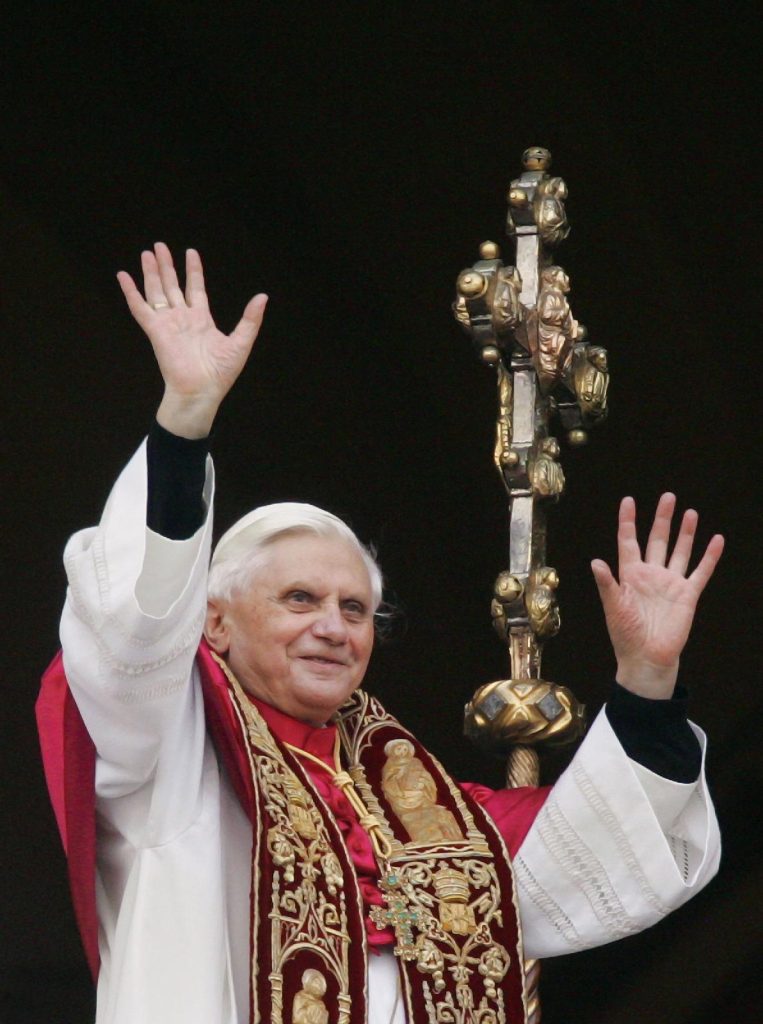
When Pope Emeritus Benedict XVI announced his retirement in 2013 to turn the papacy over to a younger, more energetic man, it shocked the Catholic world.
“That was my second year in Rome,” recalled Father Andrew Bulso, pastor of St. Edward Church in Nashville, who was a seminarian for the Diocese of Nashville studying in Rome when Pope Emeritus Benedict stepped down from the papacy.
“I remember distinctly where I was when the news started going around,” Father Bulso said. “I was in the hallway in school waiting to go into my canon law exam. It was going to be an oral exam. All of a sudden, this student started running down the hallway shouting, ‘The pope has resigned, the pope has resigned.’
“I thought it was a joke,” Father Bulso said. “I found out it wasn’t a joke.”
“Everybody was surprised. A lot of people were wondering, ‘Can he even do that?’” Father Bulso said. “In that kind of a moment everyone was apprehensive. It was something new.”
“Quickly, journalists established there was a precedent for that,” recalled Father Michael Fye, pastor of St. Ann Church in Nashville, who also was a seminarian studying in Rome in 2013.
Pope Emeritus Benedict XVI, who served as pope for eight years, died on Saturday, Dec. 31, 2022, at the age of 95.
His decision to resign, the first pope to do so in almost 600 years, raised questions about the nature of the papacy and the nature of the office, Father Fye said.
“We talked about whether he was setting a precedent” by resigning, Father Bulso said. “We have to remember, too, he was very close to Pope John Paul II and watched him decline in health.”
Pope Emeritus Benedict’s decision contrasted with that of his friend and predecessor, St. John Paul II, who remained as pope even as Parkinson’s disease made it ever more difficult for him to move and talk.
“I find it interesting the differences, even though they were best friends,” Father Fye said. “John Paul II remained in the papacy to his death” wanting to witness to the world that those who are frail still have a dignity, “which was a beautiful message,” he said.
“In his own kind of German way, (Pope Benedict) had a preference for making sure the office and the role needed to function, and he decided to bow out,” Father Fye added. “Both choices are good. Both are examples of humility in their own way.”
Both Fathers Fye and Bulso noted that even before Pope Benedict ascended to the throne of St. Peter, he had already established himself as one of the leading theologians of the 20th Century.
“That’s why seminarians and priests felt a kind of kinship with Pope Benedict, because he was an accomplished theologian. He spoke their language,” Father Fye said. “As a seminarian, that’s our world.”
“I certainly admired him and looked up to him … for the depth of his theological thought,” Father Bulso said. “I really appreciated the encyclicals he’d done.”
“As someone who wrote theology before and after Vatican II, his was important,” Father Fye said of Pope Emeritus Benedict. “From my perspective, he provided a unique guidance in the Church just after the Second Vatican Council. As somebody who was present and writing and engaged in the debates before and during the council, his was a helpful voice for us to understand what the Church intends.”
The German-born Benedict, as Cardinal Joseph Ratzinger, was tagged with the nickname “God’s Rottweiler” during his 24 years leading the Congregation of the Doctrine of the Faith, which is responsible for promulgating and defending Roman Catholic doctrine. But the name didn’t fit the man, Father Fye said.
“People think of him as an arch conservative. Before the council he was considered a liberal,” Father Fye noted. “If you actually read his writings … I found a huge amount of humility. …
“He was a man with a servant’s heart and was just trying to do what the Lord asked of him,” Father Fye added.
“I think he will be remembered especially as one of the major theologians of the 20th century. He certainly will be remembered for resigning, just because that was so unusual,” Father Bulso said. “I think he’ll be remembered for his association with John Paul II and continuing his legacy and continuing the process John Paul II started of implementing the Second Vatican Council in continuity with Church teaching.”









